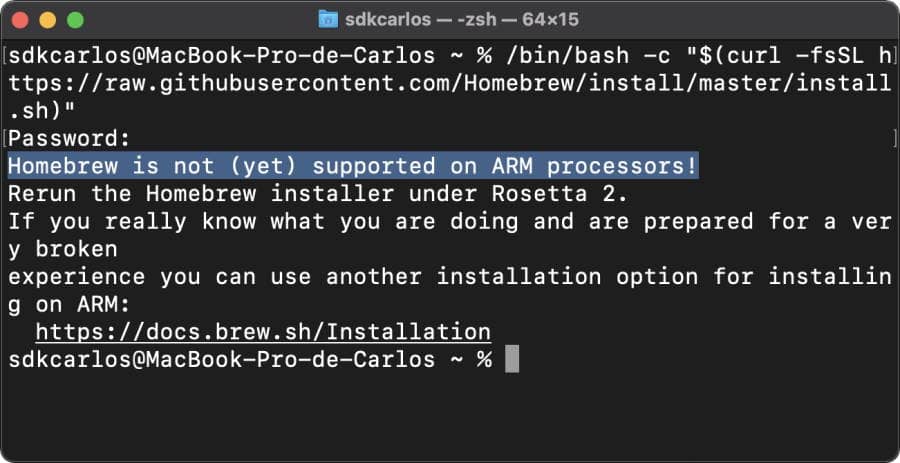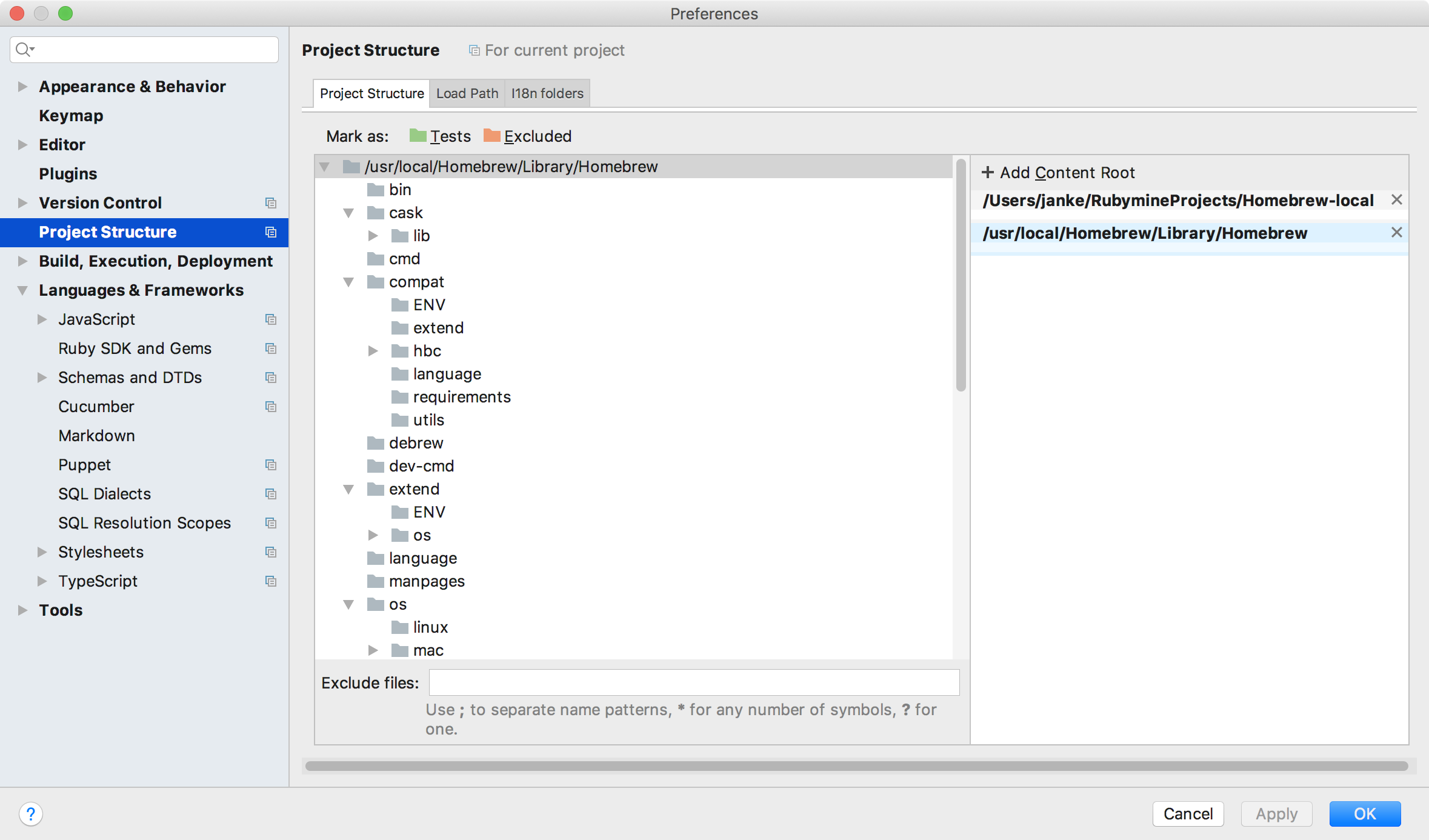The Missing Package Manager for macOS (or Linux). It’s all Git and Ruby underneath, so hack away with the knowledge that you can easily revert your modifications and merge upstream updates. Apr 05, 2021 Before you install Homebrew on Mac, you’ll need to make sure you have the following: A 64-bit Intel CPU or an Apple Silicon CPU (i.e., an M1 Mac) You can check if you have a compatible Mac by pressing cmd + spacebar, typing “About This Mac”, pressing return, and then checking the Processor. Mac终端软件安装利器:Homebrew 一、Homebrew是什么? Homebrew是一款Mac OS平台下的软件包管理工具,拥有安装、卸载、更新、查看、搜索等很多实用的功能。简单的一条指令,就可以实现包管理,而不用你关心各种依赖和文件路径的情况,十分方便快捷。. Homebrew is a utility for Mac computers that aids the process of installing new applications. The software is open source, allowing you to check the safety of the app before using it.
After reading all the raving reviews online about the new Apple M1-based Mac computers, and after losing too much time with my overheating MacBook Pro 2013 that’s on its last legs, I caved and bought a Mac Mini M1.
☑️ Apple 30″ Cinema display (2013)
I made the mistake of thinking that any USB hub with a Mini Displayport connector would work with my Cinema display. But apparently, not all such ports are also Thunderbolt 2, as I found out with my Satechi hub.. Fortunately, Apple sells a 55 euro Thunderbolt 3 (with USB-C connector) to Thunderbolt 2 (with mini Displayport connector), and it works perfectly. This already takes 1 of the 2 USB-C ports on the Mac Mini.
☑️ Homebrew in native mode
I do a lot of bash/script development so my first concern was getting all of my bash scripts working on the new ARM architecture. I concentrated on bash/terminal in native arm64 mode, which means not running under Rosetta2. This because I want to benchmark in native mode, and I kind of assume that under Rosetta 2 everything works that worked under MacOS for Intel, and where’s the fun in that?


For that, I needed to get the Homebrew package manager running in native mode. The thing is, Homebrew does not yet support the new Apple Silicon M1 chip (they only started the first steps in Dec 2020), so you have to dodge all the warnings they throw at you. After someresearch, I found the best way to do it, and I combined all of it in an easy install/uninstall bash script:** https://github.com/pforret/m1_homebrew** It installs the command-line tools and Homebrew to /opt/homebrew for arm64 mode, and to /usr/local for standard i386 mode.

Running it is as easy as:
🤞 brew install –build-from-source
After installation, running brew install will give you warnings and will often not be able to install the packages, because there are no pre-built casks for Apple Silicon yet.

Still, you can tell brew to install from source code, and compile on your machine by using brew install --build-from-source (or shorter: brew install -s). For small packages like awk, this will do the job. For large packages with lots of dependencies like ffmpeg, brew will stop for lack of bottles.
Home Brewing Supplies Near Me
☑️ native imagemagick
My first big package to install was imagemagick. It’s my go-to tool for image manipulation and part of many of my scripts like e.g. splashmark. Imagemagick has lots of brew dependencies for treating different kinds of files, like libpng, openjpeg, webp and ghostscript. Every time brew requires a package that isn’t installed yet, it stops with the error mentioned above. You then have to build that package separately and try the original brew install again. This is how I got imagemagick compiled in the end.
Homebrew Machine
☑️ m1_homebrew recursive
I automated this process in the same script m1_homebrew.sh. m1_homebrew recursive imagemagick first looks for all the dependent packages (via brew info), installs those first one by one and then, at the end, installs the main package. It can take a long time but it’s magic when it works.
😥 no native ffmpeg
Unfortunately, it doesn’t always work. I tried it for ffmpeg, but this package requires some dependencies that will not build on MacOS M1 for now. Concretely: rust and openjdk cannot be built yet, and ffmpeg requires them.
- rust: hangs on “
arch -x86_64 make” which implies that it’s building a x86_64 (Intel) version instead of a arm64 native version, - openjdk: “configure: The tested number of bits in the target (64) differs from the number of bits expected to be found in the target (32)“
They are both still marked as ⚠️ on the official Homebrew M1 compatibility list.
Recent Posts
Generate individual tag/category/author pages for your Jekyll websiteI’ve been migrating more and more of my websites to Jekyll static sites, from Wordpress. The advantages are clear:
| My disaster upgrade to LastPass PremiumLastPass has started pushing its free users towards a paid premium subscription. The way they do this is by only allowing the free version for 1 platform, e.g. only your... • 18 Mar 2021 | Detecting excessive SSD wear on Apple Silicon M1 machines
|

